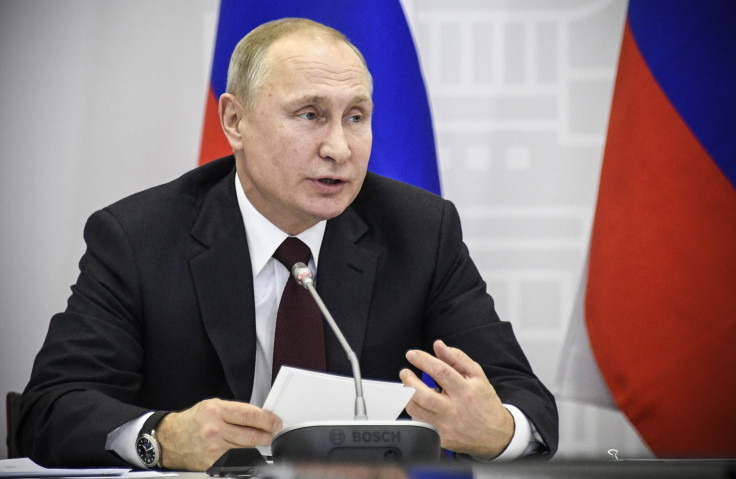Kremlin Report: How US Treasury Department Prepared The Oligarchs' List

The United States Department of the Treasury released a list Monday consisting of the names of Russian oligarchs, senior Kremlin and government officials and chief executive officers (CEOs) of state companies, perceived to have close relations with Russian President Vladimir Putin.
According to a report by Bloomberg, the U.S. Treasury Department, State Department and the Director of National Intelligence were responsible for the list which named "the most senior foreign political figures and oligarchs in the Russian Federation, as determined by their closeness to the Russian regime and their net worth."
The list was mandated by Congress through a law, Countering America’s Adversaries Through Sanctions Act (CAATSA), signed by President Donald Trump in August 2017 and aimed to increase pressure on Russia. This was done because intelligence agencies of the U.S. stated Putin ordered a hacking and propaganda campaign that looked to influence the U.S. presidential elections in 2016, a report by Radio Free Europe said.
In the unclassified document released there are two sections. Appendix A listed the names of the 114 senior political officials.
BRK: Treasury lists 114 high-level Russian Govt officials. Here it is >> pic.twitter.com/Yec2XeY46f
— Christina Wilkie (@christinawilkie) January 30, 2018
Appendix B listed the names of 96 oligarchs.
BREAKING: Treasury list of Russian Oligarchs released. “Those individuals who, according to reliable public sources, have an estimated net worth of $1 billion or more.”
— Christina Wilkie (@christinawilkie) January 30, 2018
Here’s the list. pic.twitter.com/x7crtZNU5f
The Department of Treasury in another document described the process undertaken in order to make the list. The document stated that to determine the names of Russian political figures in Appendix A, the department used the definition of the term "senior foreign political figure" given in Section 214 of the CAATSA Act.
The document further stated that "for purposes" of the unclassified report, the names which would come under the definition of "senior foreign political figure" were senior members of the Russian Presidential Administration, members of the Russian Cabinet, Cabinet-rank ministers, other senior political officials which would include the leadership of the State Duma and Federation Council and other members of the Russian Security Council along with senior executives at state-owned organizations.
BRK: Full Treasury unclassified memo detailing how it determined who to list on the tally of Russian oligarchs and Russian govt officials, and why. pic.twitter.com/YsHsJYaUv0
— Christina Wilkie (@christinawilkie) January 30, 2018
For determining the names which were to be included in Appendix B, the document stated that the Department of Treasury listed those individuals who had an estimated worth of more than $1 billion. The names were determined by referencing "reliable public sources."
According to a report by Mother Jones, although the list doesn’t carry with it any sort of legal troubles, the Russian business communities were preparing themselves for the release of this "black list" for many months by trying to work with their contacts in U.S. in a bid to try and keep their names from being included.
The report further stated that the Russian businessmen, who are some of the world’s richest people, perceived this informal U.S. government-made list as a threat to their wealth, image and contacts in the West, possibly making them open to sanctions in the future.
According to an anonymous source, numerous Russians tried to influence the list by calling for meetings with members of the House and Senate committees who are in charge of policies regarding sanctions, Mother Jones reported.
Former treasury sanctions official, Elizabeth Rosenberg stated that some Russians had made arrangements for their agents to meet with lawmakers in their home towns, the report said.
Kremlin spokesman, Dimitry Peskov, before the release of the list Monday, stated Moscow believed the list named the "Kremlin Report," was an attempt made by the U.S. to influence the Russian presidential elections due to take place on March. 18.
"We really do believe that this is a direct and obvious attempt to time some steps to coincide with the election in order to exert influence on it," Peskov reportedly said.
© Copyright IBTimes 2024. All rights reserved.





















